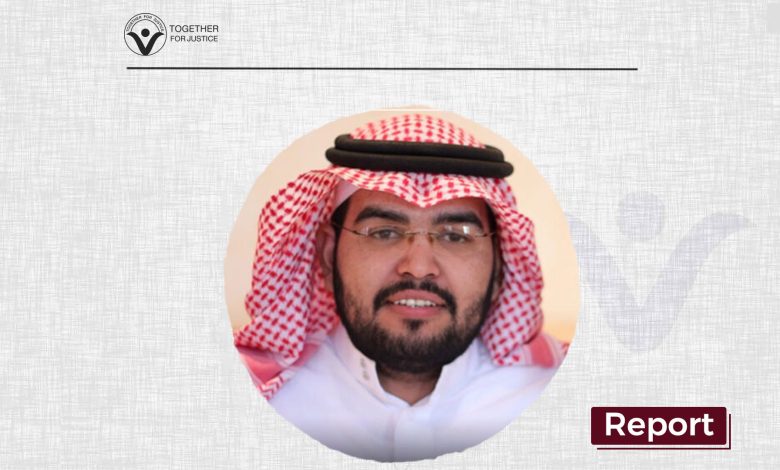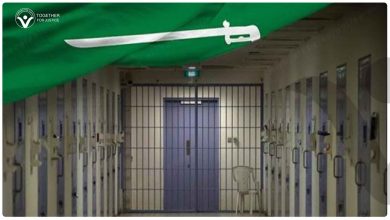Abdulaziz Al-Shubaily: A Timeline of Persecution and Struggle for Human Rights in Saudi Arabia

Abdulaziz Al-Shubaily, a renowned Saudi lawyer and human rights defender, has become a symbol of the ongoing repression of civil rights activists in Saudi Arabia. As a founding member of the Saudi Civil and Political Rights Association (ACPRA), Al-Shubaily dedicated much of his career to defending human rights and advocating for political reform within the Kingdom. His journey from advocate to prisoner reflects the harsh realities faced by those challenging Saudi authorities, particularly under the leadership of Crown Prince Mohammed bin Salman.
2011: Founding of ACPRA
Al-Shubaily co-founded ACPRA, a grassroots organization aimed at promoting civil liberties and political reforms in Saudi Arabia. As an active member, he was instrumental in defending victims of judicial persecution and providing legal representation to individuals detained for political dissent. He used social media as a tool to advocate for human rights and to raise awareness about the injustices within the Kingdom.
2014: The First Legal Challenge
Al-Shubaily’s activism attracted the attention of the authorities, who sought to curb his influence and silence his criticism. In July 2014, he was officially charged with several offenses, including “incitement to protest” and “challenging the integrity of the Saudi judiciary.” Additionally, he was accused of “slandering the Council of Senior Scholars” and “stirring public opinion against the rulers,” by labeling Saudi Arabia a “police state that violates human rights.”
These charges were clearly aimed at curtailing his right to free expression and participation in civil society. Despite the gravity of the charges, Al-Shubaily continued his advocacy work, providing legal support for fellow ACPRA members who faced similar persecution.
2015: Additional Charges and Secret Trial
In March 2015, Saudi authorities escalated their campaign against Al-Shubaily by introducing a new charge: “communicating with foreign organizations.” This accusation referenced his cooperation with international human rights organizations, including his efforts to share information with United Nations mechanisms.
Al-Shubaily’s trial began in secrecy before the Specialized Criminal Court (SCC) on April 9, 2015. The court, which often handles cases related to terrorism, has been used as a tool by the Saudi government to suppress political opposition. Despite international pressure, his trial lacked transparency and due process, with severe restrictions on his legal rights.
2016: Sentence and Appeal
On May 29, 2016, Al-Shubaily was sentenced to eight years in prison, followed by an eight-year ban on using social media and traveling outside the country. The charges against him were based purely on his peaceful activism and his exercise of fundamental rights, such as freedom of expression and association. However, the Saudi authorities did not immediately detain him, a tactic often employed to pressure activists into ceasing their work by keeping the threat of imprisonment hanging over them.
In July 2016, Al-Shubaily appealed the decision, but the court upheld his sentence on May 15, 2017. The Saudi regime’s strategy of legal harassment succeeded in restricting his movements and limiting his ability to advocate for human rights during this period.
2017: Arrest and Detention
On September 17, 2017, Al-Shubaily was arrested in Al-Qassim province and taken to Al-Uneyzah prison, where he remains detained as of August 2024. His arrest marked the culmination of years of targeted harassment, legal threats, and court proceedings aimed at silencing him and his fellow activists. His detention took place amidst a broader crackdown on civil society under Crown Prince Mohammed bin Salman, with a series of mass arrests targeting intellectuals, clerics, and human rights defenders across the Kingdom.
International Outcry and UN Involvement
Al-Shubaily’s case drew significant international attention, particularly from human rights organizations and the United Nations. On November 21, 2019, the UN Working Group on Arbitrary Detention released Opinion No. 71/2019, concluding that Al-Shubaily’s detention was arbitrary and a violation of international law. The Working Group emphasized that his peaceful advocacy for human rights, including his sharing of information through online platforms, could not reasonably be construed as a threat to public order in a democratic society.
The UN report highlighted the systemic nature of Saudi Arabia’s human rights violations and called for Al-Shubaily’s immediate release. However, Saudi authorities ignored these recommendations.
2020: UN Secretary-General’s Report
On September 30, 2020, the UN Secretary-General included Al-Shubaily’s case in the annual report on reprisals against individuals cooperating with UN human rights mechanisms. This inclusion underscored the risks faced by human rights defenders in Saudi Arabia and the Kingdom’s retaliatory actions against those who engage with international human rights bodies.
Abdulaziz Al-Shubaily’s story is one of resilience in the face of systemic oppression. His work with ACPRA and his dedication to defending civil liberties in Saudi Arabia has come at great personal cost. The ongoing suppression of his rights, despite global attention, illustrates the challenges activists face under the rule of Crown Prince Mohammed bin Salman. Al-Shubaily’s case remains a powerful symbol of the struggle for human rights in the Kingdom, highlighting the urgent need for international advocacy and pressure to secure his release and to protect the rights of others like him.




